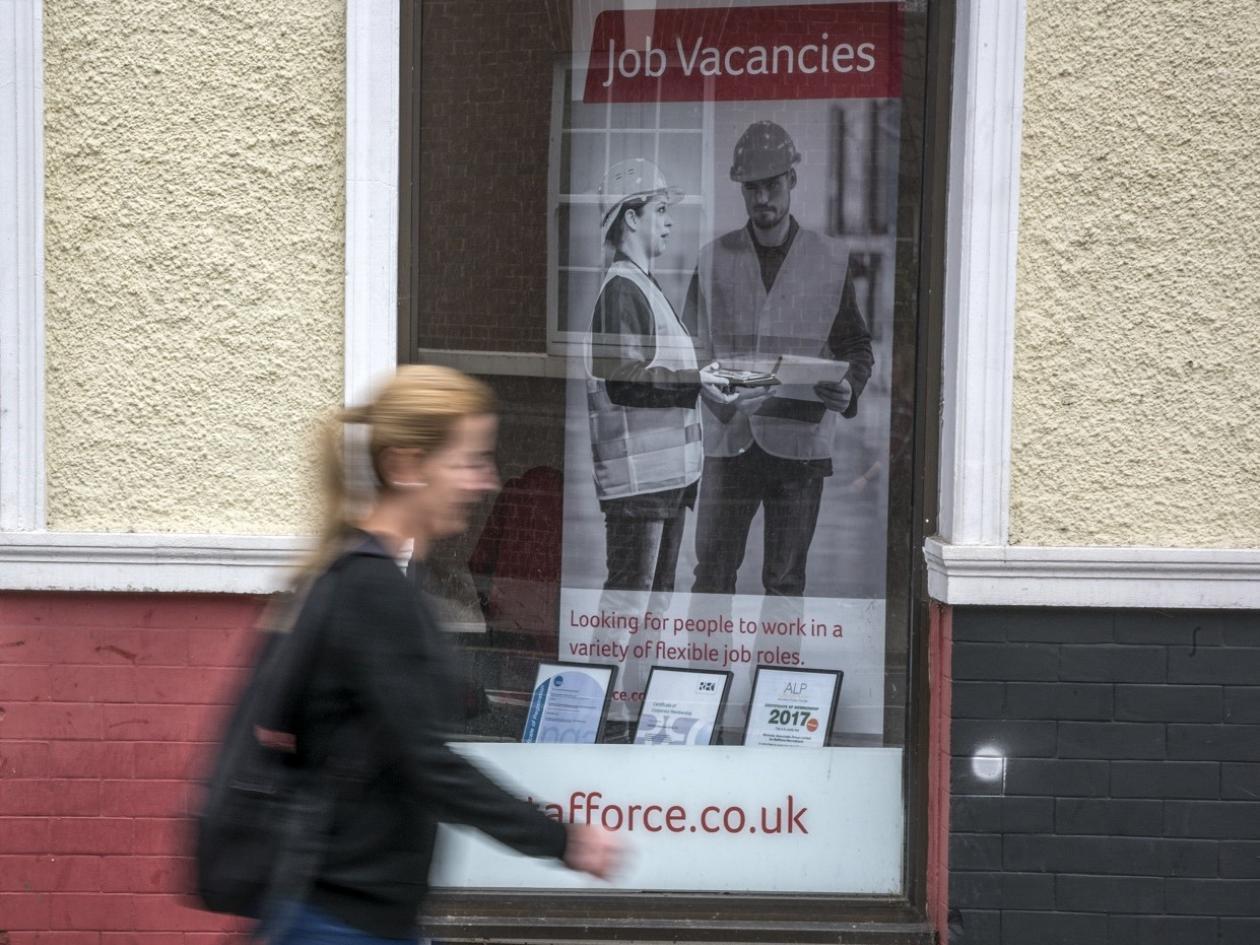Moving from a higher skilled job to a lower skilled job is common, accounting for around a fifth of career changes in the UK, but until now, research has mostly focused on career progression, or on unemployment. This downward occupational mobility, however, can happen to anyone, whether it’s because of a recession, a return from maternity leave, a company restructuring or downsizing, or a job being replaced by technology.
My co-authors and I wanted to understand more about how downward career moves affect people, so we used ten years of Understanding Society data, from 2009-19, to look at patterns of job satisfaction for up to three years before a downward move, and up to five years afterwards.
Comparing careers
We tested three ideas. Firstly, existing research suggests that the psychological ‘hit’ from a downward move can last for several years. We expected this to be true in this research, too, because moving down the occupational ladder usually involves a drop in income – and a change in job quality. People in managerial and professional jobs typically enjoy more variety, autonomy, and opportunities to make decisions and learn skills. Moving down a rung is likely to mean losing some of these.
Our next hypothesis concerns how we evaluate our working lives. We tend to compare our current circumstances with how things were for us in the past. Moving down a level in our work might be hard, but we know that unemployment is bad for wellbeing, too. So, might it be worse to go straight from a higher occupation to a lower one than it is to be unemployed between one job and a new one that isn’t as good? Going direct from one to the other means the previous, more valued, job is fresh in one’s mind. A spell of unemployment, however, is a financial and mental strain, so even a job that doesn’t put us back where we were is an improvement.
We also tend to compare ourselves with others, which brings us to our third point. Research has shown that people who are out of work in ‘unemployment blackspots’ report better mental health than those who are also unemployed but live in areas of lower unemployment. So, it makes sense that a downward career move will not be as bad for job satisfaction in an area with high unemployment – if others are in the same boat, maybe we’re less likely to blame ourselves.
Measurements
Each year, Understanding Society asks people ‘All things considered, how satisfied or dissatisfied are you with your present job overall?’, with answers on a seven-point scale from ‘completely dissatisfied’ to ‘completely satisfied’. We used these answers, and also grouped people’s jobs into three commonly used bands:
- A: ‘managers’, ‘professionals’, and ‘associate professionals’
- B: ‘clerical’, ‘craft’, and ‘personal service’ workers
- C: ‘sales’, ‘machine operatives’, and ‘elementary’ workers
We took into account several other factors in people’s lives, such as whether they were married, and/or had children, how old they were, and their level of education. We also linked the Understanding Society data with information on the regional unemployment rate from the Office for National Statistics.
Findings
Our first finding, in line with previous research, was that job satisfaction fell in the 2-3 years before a downward career move, which suggests that people became increasingly disenchanted before they quit their jobs. Job satisfaction recovered on first starting a new job, but fell again in the first year, and stayed low for most of the follow-up years.
As we expected, people who moved straight from a higher job to a lower one reported lower job satisfaction in each year after the move, with little sign of improvement over time. People reacted less negatively when they were unemployed between the two jobs.
Looking at regional unemployment, we found – again, as expected – that people reacted less negatively to downward mobility if they lived in a region with higher unemployment. However, job satisfaction appeared to fall over time. This effect was small, though, and needs more investigation.
What we’ve learnt
It seems that, as we thought, unemployment ‘resets’ our attitude to work. Instead of comparing the new job with the one before, we are more likely to compare it to having no job, increasing our satisfaction with what we have now.
Also, people do indeed see a difference if they live in an area of higher unemployment. They appear to be less likely to blame themselves for macro-economic factors beyond their control. However, this may not last, and wellbeing may deteriorate in the long term due to poorer prospects in these regions.
These findings are important in showing that the same event won’t necessarily affect everyone in the same way, and that our past experiences and the social context we live in can influence how we evaluate our lives. They also raise suggestions for government policy.
Policy implications
The results we found in relation to unemployment suggest that people have an inherent need to do paid work. Policies which help people to get back into work, then, can obviously mitigate the negative effects of not having a job.
Downward career moves also clearly cause prolonged frustration. Expanding high-quality vocational training and containing the spread of precarious work could alleviate this.
Finally, although downward mobility hurts less in regions with higher unemployment, chronically high unemployment means poorer long-term prospects for everyone. Where high-quality work is hard to find, people’s skill development, ambitions, and wellbeing will suffer. Raising employment levels, and giving more people access to good quality work, can only help.
Authors

Ying Zhou
Ying Zhou is Professor of Human Resource Management and Director of the Future of Work Research Centre at the University of Surrey

Min Zou
Min Zou is Associate Professor in Human Resource Management at Henley Business School, University of Reading

Mark Williams
Mark Williams is a Professor of Human Resource Management in the School of Business and Management at Queen Mary University of London




